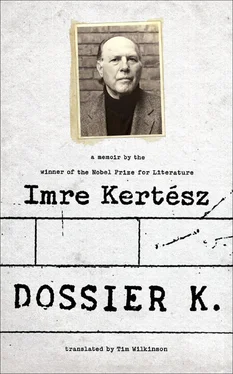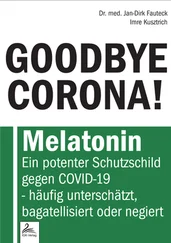Did you ever talk about that?
I think Fazekas was aware that I had passed through Auschwitz.
That was it?
It was something that never came up openly in conversation between us. If he did know, it could only have been from my so-called “cadre,” or Party-worker, record card — the secret document that followed one around, like an invisible shadow, from office to office.
I would really like to push you further about that, but I have to confess that the subject makes me, as a non-Jew, rather uneasy .
One of those “tricky topics,” right?
Sadly, that’s still the case in Hungary. I don’t know if it’s a question that it is in any way legitimate to pose …
Pose it, then I can either choose to reply or not.
I would like to ask you about that Jewish solidarity. Obviously, in a dictatorship that cannot have operated overtly; what I mean is that no one was able to define himself as a Jew …
Unless you went to the rabbinical training school, and provided the regime did not define you as a Jew, as was the case two years later, when the trial of those accused of involvement in the Jewish doctors’ plot got underway in the Soviet Union.
I understand. But did you, for instance, instantly identify Fazekas as being Jewish?
That’s a good question. In all probability: yes, but not in a conscious fashion. In other words, I wouldn’t have said to myself that this fellow Fazekas is Jewish, but I would have sensed that I could have a certain degree of trust in him.
Because he was Jewish .
Because we had similar … it would be hard to say what. Not faces or ways of thinking … I think that the only thing two Jews have in common is their fears; that’s how they can be distinguished most accurately, at least in Central and Eastern Europe.
That seems to run counter to the fact that Rákosi, Ger? Farkas, in short virtually the entire Stalinist leadership in Hungary at that time, were themselves of Jewish extraction. Is that something you have thought about?
No. I was aware of the fact, of course, but it’s not something that preoccupied me in any way at all. Did the fact that Szálasi and the entire leadership of the Arrow-Cross Party in Nazi Hungary were Christians give you any pause for thought?
Touché .
Look, the most destructive passion of the twentieth century was the relinquishment of the individual and the levelling of collective accusations against whole populations and ethnic groups. If we are going to start analyzing the degree to which I, as a Jew, bear responsibility for the deeds of a total stranger purely on the grounds that he, too, was born Jewish, then that is tantamount to accepting that way of thinking and crossing into the realm of ideology. Only in that case, I don’t know what we would have to talk about; I feel I am doing far too much explaining as things are.
I agree, but all the same, people do have various prejudices, out of which it is possible to forge political capital .
Undeniably, but the understanding the two of us had was not that we were going to talk about the sick aberrations of politics.
I won’t push it any further, because I made it clear from the start that I wanted to broach a touchy subject. I hope that you don’t take it amiss and I can count on your continued assistance .
Now we have started, I’m not going to leave you in the lurch.
In that case, let’s resume with fear. You said that the most two Jews have in common is their fears. To what extent did fear shape you?
I wasn’t afraid. To that extent, Auschwitz truly was a great school. What made me Jewish was the Holocaust, and that is a new phenomenon in Europe. Of course, I would not have been able to formulate it as clearly as that at the time. But later on I set myself a task in life that required me to clarify for myself the quality of my Jewishness, if I may put it like that. For instance, I would have a hard job discussing Jewish metaphysics, Jewish culture, or Jewish literature with you because I am not acquainted with these things. In that sense I am not Jewish at all. Yet that is of no interest to anyone the moment I am taken off to Auschwitz, or made the main defendant in a show trial. Then you are struggling for sheer survival and are no longer able to say that you believe you are not Jewish …
What are you, according to your conviction?
Jewish — but a Jew who has nothing in common with any of the Jewish modes of life that were known before Auschwitz, neither archaic Jews, nor assimilated Jews, nor Zionist Jews. Or with Israel. That may be the hardest thing of all to say.
It took you half a century. In 2002 you wrote a travel diary to which you gave the title “Jerusalem, Jerusalem.” 14 Nevertheless, let us stay for a bit longer on the time you spent with Fazekas. By then it was six years since you had got out of Buchenwald, you’re twenty-two; so, back then, in 1951, what did a Jewish identity mean to you?
Anecdotes, Jewish jokes, a certain protection with Fazekas — in other words, nothing, nothing at all, so I think there is little sense in using the term “identity” here. I didn’t have an identity, and I didn’t miss having one, either.
You already stated that when you were talking about your childhood .
In a certain sense I was still living my childhood then as well. Dictatorships make children out of people inasmuch as they do not permit existential choices and thereby deprive one of that wonderful burden of being responsible for oneself. At that time I lived in a fantasy world that was impossible to keep any check on, perfectly absurd; I was concealed in my insignificance.
The words ring a bell; they’re from Fiasco, aren’t they, but what do they mean, more precisely?
Total vulnerability to chance. I compared myself to a person who is cast this way by chance, like a light skiff by a swift current. Whereas I just gave in to physical appearances and considered myself to be a singularly nebulous person, whom I did not know at all and thus who served as a constant source of surprises.
It must have been a strange state .
Parlous in the extreme.
Is that how you judge it now, or did you perceive it as dangerous at the time?
I don’t know. The drawback of conversations like this is precisely the fact that one speaks self-confidently about one’s life in the sure knowledge of where it has ended up, but are you able to conjure up the person you were, your aimlessness? Can you feel under your feet the tightrope that you danced on? Did you even know that you were dancing on a tightrope? Years later, I came across that immortal adage from Duchamp: “There is no solution, because there is no problem.” Probably one has to evoke trivial details, though often even that proves futile. Not long ago, for instance, I mulled at length over what I ate in those days. What did I eat during a period when practically all items of food were only sold in exchange for ration coupons? Who washed my underwear, and how? I recollect that there used to be one of those posh, old-fashioned public lavatories in front of the EMKE café, on the corner of the Grand Boulevard and Rákóczi Avenue. There were steps that led down to it. A decrepit crone who was a leftover from the “ancien regime” was in charge of it as the WC attendant. One even got a bar of soap from her, which had to be given back after one had washed. Other than that, I used to go to the Lukács Baths to wash down and have a swim — I remember that well. There were times when I was only able to get to the swimming baths in the evening, when the green waters of the pool would be lit up by searchlights a bit like spotlights. Those years dropped out of my life like loose change through a hole in a purse; it would be useless to try to gather them together now. On a sunny but gusty winter morning not long ago, I took a walk through the Városmajor Park in Buda and cut over the tramlines to reach Logodi Street 15in order to look for the house where I had been a subtenant what is now a good fifty years ago. I have long since forgotten the house number, so I tried to recognize it from memory: it just didn’t work. I traipsed back home. I began to realize that I shall never again make sense of my young days: I don’t know what I did, and why, how and why I became the person I became.
Читать дальше












